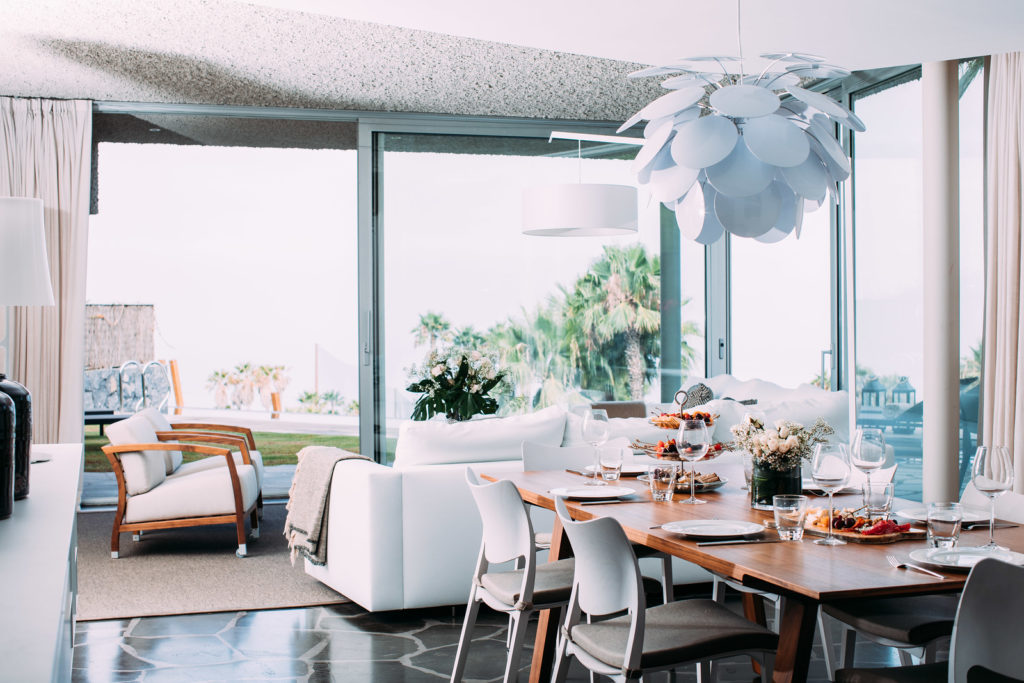
The real estate property developer faces a varied and complex reality in which a myriad of elements must be kept in focus at all times, especially if the product under development is a residential community in a resort. From the planning of new residential destinations to the review of existing projects that require modernization, today’s real estate development not only requires construction and asset marketing, but possession of a global vision that can guide sustainable projects over time.
Residential, tourism and mixed communities must integrate perfectly into their surroundings and adapt to change to enjoy long-term profitability. A successful residential complex is not just a collection of homes, but the sum of the real estate assets, services, facilities and unique attractions that imbue the destination with its own personality. Arum Group’s years of experience as a management and real estate development company have enabled us to master the processes and design strategies to shape real estate projects that go beyond expectations.
Property developers must be attuned to the modern world and its needs to create a well-defined strategy. A good masterplan is the starting point for all real estate development management and will inspire marketing and sales plans not only for the residential development, but also for the commercial, leisure and service elements that give life to a community. Below are a few of the key pillars for success as a property developer takes on a new project:
1 – Strategic concept development and masterplanning
2 – Developer-builder innovation in construction management
3 – Online and offline integration in marketing and sales
4 – Digital transformation for residential real estate development
5 – A luxury property developer case study: Abama Resort, Tenerife
Strategic concept development and masterplanning
A property developer’s residential project success begins with the concept. What will eventually become the residential master plan is based on numerous analyses of the resources at hand, land use, location, project objectives, and sustainability factors. The development’s viability begins with choosing the best land, defining the appropriate offer and optimizing all its possibilities. The planning and concept stages must be undertaken with technical teams who are experts in project management for real estate development, and who can translate these concepts into concrete multidisciplinary management and monitoring strategies.
Starting from scratch, while a challenge, means the real estate developer can give shape to concepts and ideas that organize, transform and improve destinations through complex projects. Between this first conceptual phase and the subsequent execution of the plan is where the foundations for success lie. The goal is not to isolate the residential development but to see it as an integral part of the destination as a whole.
These steps are also crucial in securing the real estate development funding aligned with your project. The execution phase of any project cannot proceed without financing in place, and ideally the investors should be aligned both with the project and with commitments to sustainability on every front. Being able to lay out a clear, detailed plan that covers all aspects of strategy and execution is the best way to assure your interests and objectives are aligned.
Developer-builder innovation in construction management
Only from the perspective of a developer-builder can global planning and coordinated management achieve its smoothest operation. This continuity of vision ensures the long-term results of a project by managing multidisciplinary and intersectoral teams throughout the most important phases of a project.
From the supervision of the architects and construction workers to budget planning and financial control, and through real estate and commercial marketing and the subsequent management and operation of assets, the residential property developer must interact and coordinate with all the project teams to meet objectives that go beyond simple sales.
Today, the work of developing and managing real estate projects transcends the traditional concept of isolated residential development and focuses on the inherent characteristics of the destination and its present and future sustainability. The development of the real estate business, therefore, takes a global perspective that covers all phases of the project and requires experience that goes beyond construction and sales.
The result is the concept development, first, and the consolidation, later, of stable and economically viable residential communities that provide everything people need and that are adaptable enough to respond to future demands. Concepts and trends such as buy-to-let residences, teleworking, senior living, health and wellness, security technology, and mobility are reflected in the offer of assets and are integrated into destinations. This creative approach to development is also an intelligent one, creating destinations that stay ahead of the markets.
Online and offline integration in marketing and sales
One key component of modern property development project management is digital technology. Property development companies must produce marketing and sales plans for real estate businesses that are adapted to our new times, new consumers and new dissemination channels. Good property development management includes all the stakeholders in these plans, including the in-house sales teams, but also trusted brokers and property networks.
Working in a versatile and dynamic sector that is constantly exposed to changes and trends, it is essential to have an innovative vision that uses new tools for communication and analysis. No matter the phase of a project or the target market, the developer’s vision must integrate all actions. Real estate sales, marketing, operations, and B2B and B2C activities have to be carried out through blended offline and online channels. The most useful aspects of each channel must be leveraged to their fullest. This Blended Marketing perspective also provides many interesting data, enabling you to make even more intelligent use of channels in the future and learn more about your clients and partners.
Digital transformation for residential real estate development
Innovation in the 21st Century goes hand in hand with digital transformation, even in residential real estate development. The destination management sector requires specific software and digital tools that match business, sales, and marketing processes.
This has led Arum Group to develop proprietary software for real estate sector management, specially designed and adapted to be used in operations, product catalogues, sales, customer databases, and more. Our clients not only know the sector and its opportunities and threats, but thanks to state-of-the-art technology, can quickly perform the best analysis and find solutions.
Intelligent use of data, combined with other comprehensive tools like Inbound Marketing, allows us to approach consolidated customers and emerging markets alike, yet treat each contact and each business opportunity in a differentiated way that reflects their needs. Tools such as market databases, sector-specific software, and new trends in automation must be at the heart of this work.
A luxury property developer case study: Abama Resort, Tenerife
As a luxury property developer, Arum has had great successes, and one of the best examples is Abama Tenerife, where real estate development, management, and sales have been coordinated over all the project’s phases since 2011. Arum developed the residential masterplan, designed all the infrastructure and continues to manage most of the assets, including real estate, golf, tennis, and the new commercial center. Our company is also responsible for sales and marketing management, communication, PR, events, and owner relations.
This 400-acre destination on Tenerife, in the Canary Islands, brings together luxury residential properties, Michelin-star restaurants, and world-class golf facilities. Abama has grown to become the best luxury resort on Tenerife and one of the best in Europe, offering a diverse range of exclusive real estate, which to date has sold more than 280 units to buyers from all over the world. Spacious holiday apartments, sublime custom villas, and a Dave Thomas-designed golf course that overlooks the Atlantic Ocean are just a few of the resort’s features, not to mention the best climate in Europe.
For a property developer like Arum, projects like Abama inspire pride not only because the destination has gained fame. Their true worth is in the sustainability of their success, both economically and socially. They incorporate new trends and approaches and integrate them through a holistic project vision that takes residential development as part of a greater whole. As a result, new demands are anticipated and met with a transversal and professional response, and the residential community becomes the heart of a destination that people want to return to again and again.



